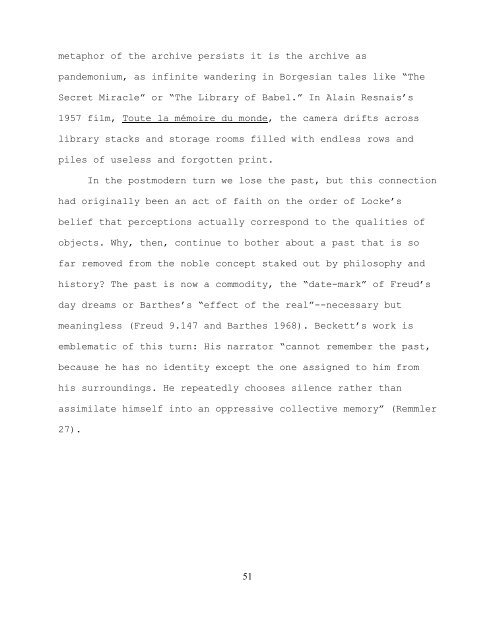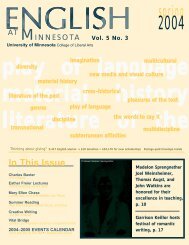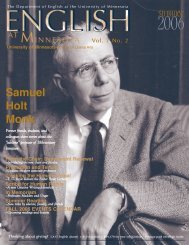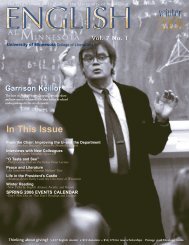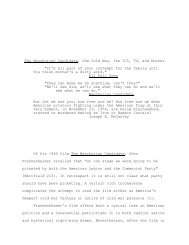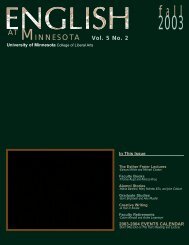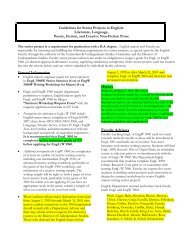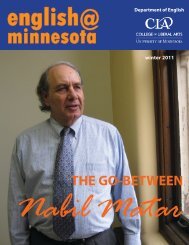Screen Memory - Department of English
Screen Memory - Department of English
Screen Memory - Department of English
You also want an ePaper? Increase the reach of your titles
YUMPU automatically turns print PDFs into web optimized ePapers that Google loves.
metaphor <strong>of</strong> the archive persists it is the archive as<br />
pandemonium, as infinite wandering in Borgesian tales like “The<br />
Secret Miracle” or “The Library <strong>of</strong> Babel.” In Alain Resnais’s<br />
1957 film, Toute la mémoire du monde, the camera drifts across<br />
library stacks and storage rooms filled with endless rows and<br />
piles <strong>of</strong> useless and forgotten print.<br />
In the postmodern turn we lose the past, but this connection<br />
had originally been an act <strong>of</strong> faith on the order <strong>of</strong> Locke’s<br />
belief that perceptions actually correspond to the qualities <strong>of</strong><br />
objects. Why, then, continue to bother about a past that is so<br />
far removed from the noble concept staked out by philosophy and<br />
history? The past is now a commodity, the “date-mark” <strong>of</strong> Freud’s<br />
day dreams or Barthes’s “effect <strong>of</strong> the real”--necessary but<br />
meaningless (Freud 9.147 and Barthes 1968). Beckett’s work is<br />
emblematic <strong>of</strong> this turn: His narrator “cannot remember the past,<br />
because he has no identity except the one assigned to him from<br />
his surroundings. He repeatedly chooses silence rather than<br />
assimilate himself into an oppressive collective memory” (Remmler<br />
27).<br />
51


